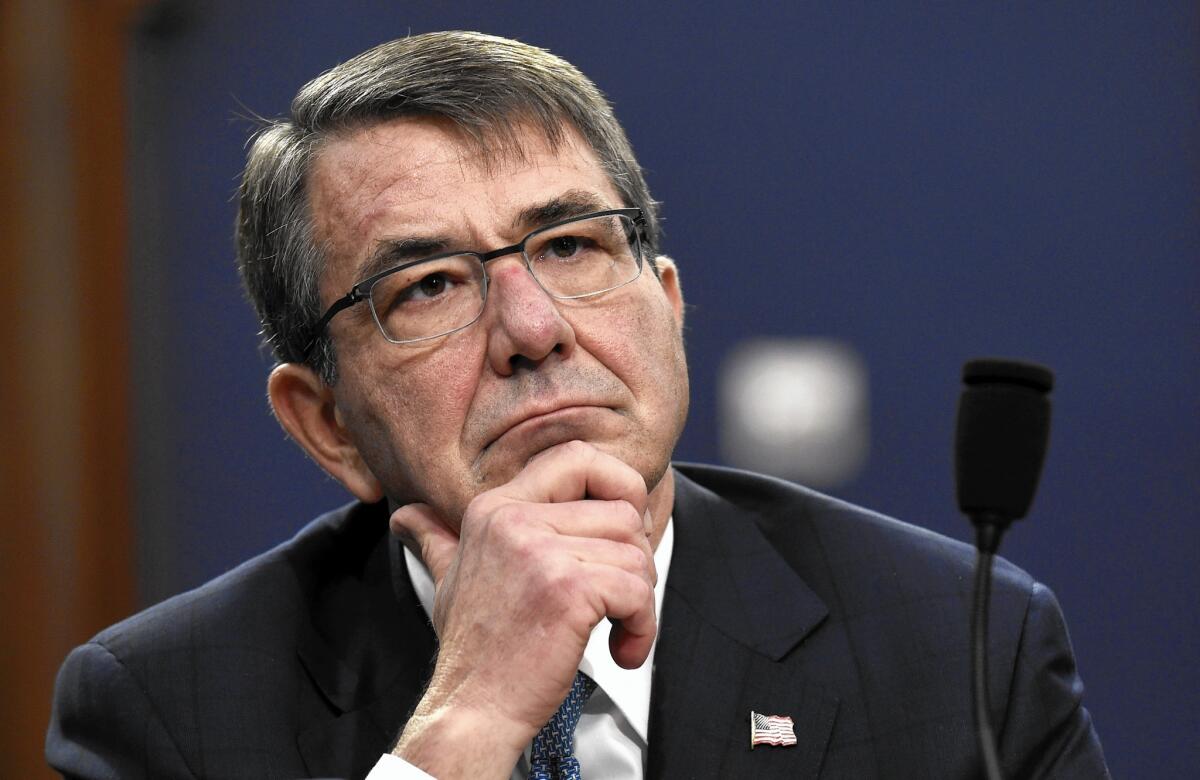Encryption debate dominates San Francisco tech conference

- Share via
Reporting from San Francisco — The government’s battle with Apple over encryption dominated one of the world’s largest cybersecurity conferences as top Obama administration officials and Silicon Valley executives argued about how to balance privacy and security.
Appearing at the RSA conference, U.S. Atty. Gen. Loretta Lynch criticized Apple for fighting a federal court order and refusing to help the FBI unlock an iPhone used by one of the San Bernardino killers.
“Do we let one company, no matter how great the company, no matter how beautiful their devices, decide this issue for all of us?” Lynch asked Tuesday.
But tech company officials said giving the FBI tools to create a so-called backdoor to encryption would weaken security on millions of smartphones and other devices.
“Despite the best intentions, the path to hell starts at the backdoor,” said Brad Smith, president and chief legal officer of Microsoft. “We need to make sure that encryption technology remains strong.”
He said Microsoft had responded to 14 court orders for digital data on suspects wanted in Belgium after Islamic State gunmen killed 130 people in Paris on Nov. 13.
“We were able to respond, determine they were lawful and turn the [information] over in under 30 minutes,” Smith said.
Appearing Wednesday, Defense Secretary Ashton Carter appeared sympathetic to Silicon Valley’s side of the debate.
“I’m not a believer in backdoors,” Carter said, drawing applause from a crowded conference hall.
Carter said resolution of the Apple case could have major implications for the Pentagon, which supplies employees with computers, smartphones, and other electronic devices outfitted with end-to-end encryption.
U.S. Magistrate Judge Sheri Pym last month ordered Apple to write software so the FBI can obtain the password to open an iPhone 5c used by Syed Rizwan Farook. He and his wife killed 14 people at the Inland Regional Center on Dec. 2.
The company has resisted, arguing in court filings that forcing it to write software violates its 1st Amendment rights and puts the privacy of its customers at risk.
Executives from Microsoft, Google and Adobe said that if Apple relents, local, state and federal prosecutors could deluge them with similar requests.
They warned that weakening security features could make smartphones and other encrypted devices more vulnerable to hackers and cybercriminals.
Amit Yoran, president of RSA, the cybersecurity company that sponsors the conference, was scathing in his assessment of the FBI’s case.
“Weakening encryption is solely for the ease and convenience of law enforcement,” he said. “If we weaken our encryption, you can be sure the bad guys will use it against us.”
Follow @wjhenn for military and defense info.
ALSO
UCLA community protests professor’s punishment for sex harassment
Space shuttle’s external fuel tank will take a long, complex journey to L.A.
At $2 million a day, Porter Ranch residents get to keep their temporary housing
More to Read
Sign up for Essential California
The most important California stories and recommendations in your inbox every morning.
You may occasionally receive promotional content from the Los Angeles Times.














